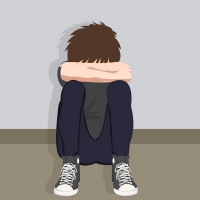By Shahida Arabi, M.A., Author
“Many abused children cling to the hope that growing up will bring escape and freedom. But the personality formed in the environment of coercive control is not well adapted to adult life. The survivor is left with fundamental problems in basic trust, autonomy, and initiative. She approaches the task of early adulthood – establishing independence and intimacy – burdened by major impairments in self-care, in cognition and in memory, in identity, and in the capacity to form stable relationships. She is still a prisoner of her childhood; attempting to create a new life, she reencounters the trauma.”
– Judith Herman, Trauma and Recovery: The Aftermath of Violence – from Domestic Violence to Political Terror
Click Here For The Rest Of The Story
Bench Notice
When our service men came back after World War II they were known to have been shell shocked or were suffering from battle fatigue. It wasn’t until more recently (within the last 20 years) that we began to refer to this condition as Post Traumatic Stress Disorder. This condition is related to the traumatizing events of a person’s childhood, or from other events that became part of the person’s imprinted memory. We really didn’t have much information about this condition sixty years ago, and our military veterans were left to flounder in a life of unemployment, alcoholism, and and marital problems. Our knowledge of this topic now has shed light on the fact that childhood neglect, abuse, and captivity has caused many of the symptoms that are very similar to the ones that our military men suffered and still suffer from today.
Those who have suffered from abuse, and neglect now have a condition referred to as Complex Post Traumatic Stress Disorder (C-PTSD), and many of our children today exhibit the same symptoms as our veterans did and still do only at a much earlier age. Knowing this should put parents and schools on notice that this condition needs to be treated early, with interventional strategies put in place to help alleviate the symptoms, and treat the root cause. Schools should take a psycho-educational approach and begin to create awareness of this condition and work with the students and the parents to keep this condition from becoming inter-generational and affecting future families and individuals.






